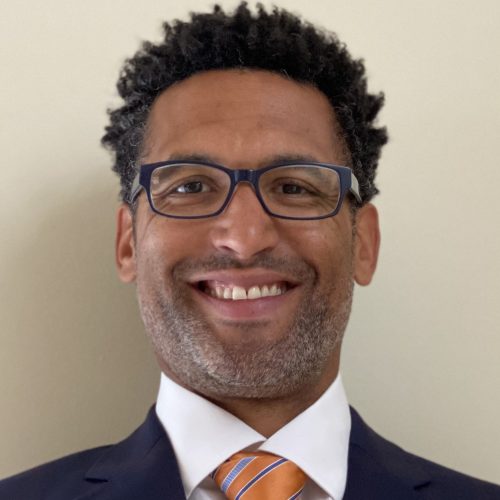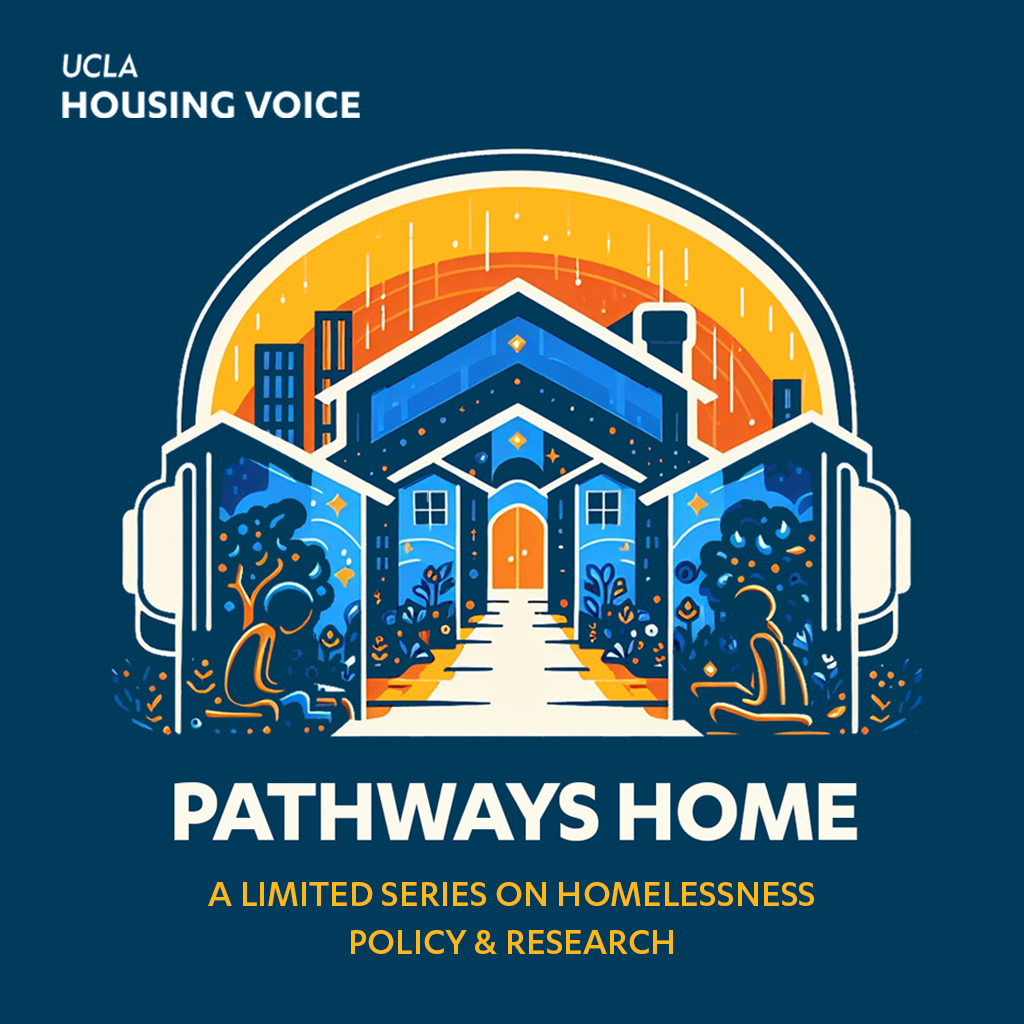About the Podcast
UCLA Housing Voice is a podcast hosted by UCLA Lewis Center’s Shane Phillips, housing initiative manager, and co-hosted alternately by professors Mike Lens, Mike Manville, and Paavo Monkkonen. Research on housing affordability, displacement, development and policy is a fast-moving field, with important implications for policy and people. But research findings don’t often get shared with those beyond academia. In every episode, our hosts talk to a different housing researcher to help make sense of their work and how it can be applied in the real world.
Meet the Hosts

Shane Phillips

Michael Lens

Paavo Monkkonen

Michael Manville
Episode Summaries and Show Notes
Encore Episode: Housing Vouchers with Rob Collinson
Notre Dame's Rob Collinson talks about housing vouchers and how his research has already helped shape policy reforms across the U.S.
Episode 94: Ride-hailing for People with Disabilities with Abigail Cochran (Road Scholars pt. 4)
On this podcast episode, University of Lincoln-Nebraska assistant professor Abigail Cochran on accessibility and ride-hailing services.
Episode 93: Equity Requirements in US Shared Micromobility Programs with Anne Brown (Road Scholars pt. 3)
Shared micromobility programs have exploded in recent years, but the benefits haven't been shared evenly. Anne Brown discusses how cities are incorporating equity into their programs, and requiring it of private operators.
Episode 92: How Housing Influences Transportation Choices with Adam Millard-Ball (Road Scholars pt. 2)
Do people drive less because they live in buildings without parking or do they live in buildings without parking because they drive less? UCLA professor Adam Millard-Ball on new research that may answer the question.
Episode 91: Neighborhood Change and Transit Ridership with Mike Manville (Road Scholars pt. 1)
How does housing policy — specifically rising rents and worsening affordability — affect transit? Mike Manville takes the guest seat in the first episode of Road Scholars.
Episode 90: How to Evaluate Zoning Reforms with Aaron Barrall (part 2)
Aaron Barrall shares insights from Los Angeles's zoning reform and what they reveal about upzoning’s effectiveness in cities worldwide.
Episode 89: How to Evaluate Zoning Reforms with Aaron Barrall (part 1)
Aaron Barrall shares insights from Los Angeles's zoning reform and what they reveal about upzoning’s effectiveness in cities worldwide.
Episode 88: Improving Voucher Outcomes with Dionissi Aliprantis
Dionissi Aliprantis shares his research on measuring neighborhood opportunity and the rent assistance program features that could meaningfully reduce racial segregation.
Episode 87: Rental Voucher Lease-Up Rates with Sarah Strochak
Strochak shares how lease-up rates vary for different groups and markets, and how reforming voucher policies could improve the lease-up process and get more people into affordable homes.
Episode 86: Where the Hood At? with Michael Lens
Associate faculty director Lens wrote a whole book on the subject. He takes the guest mic to share what he learned of 50 years of change in Black neighborhoods.
Episode 85: Wildfires, Displacement, and Housing Prices with Hannah Hennighausen
Hannah Hennighausen joins to share her research on the 2018 Camp Fire's effect on housing prices and migration, and its lessons for LA and other cities threatened by natural disasters.
Episode 84: A Review of Rent Control Research with Konstantin Kholodilin
Rent control is one of the most hotly debated housing policies, and also one of the most researched. Konstantin Kholodilin reviewed over 200 rent control studies and he joins us to give an overview of the results.




